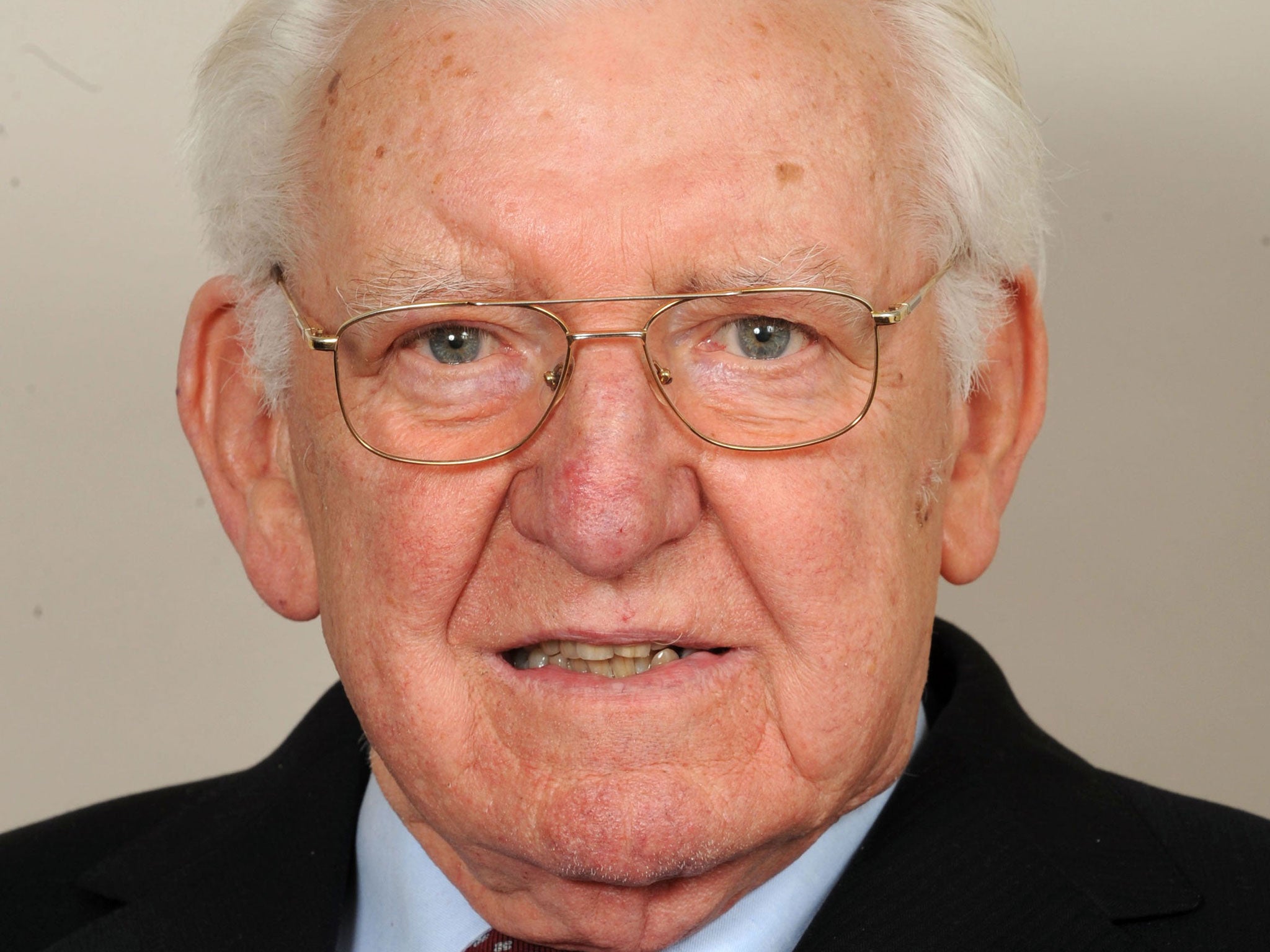Lord Roberts of Conwy: Politician
Conservative who served Welsh interests for nearly 30 years despite the indifference and hostility of his own party

The election as prime minister of Margaret Thatcher in May 1979 followed the resounding rejection of devolution in Wales in the earlier March referendum, and it seemed that there would be no legislative concessions or allowances made towards the Welsh language, or towards the development of civic institutions in Wales. Wyn Roberts managed to achieve both.
His greatest triumph came in persuading the first, and relatively insecure, Thatcher government to change its original refusal and to allow the creation of S4C (Sianel Pedwar Cymru), the Welsh language broadcaster.
In 1980, Roberts faced a difficult situation which the Tories were ill-equipped to face, when the Plaid Cymru leader Gwynfor Evans threatened to go on hunger strike to secure the establishment of a Welsh language television broadcasting service. This had been a key aim of Welsh nationalists and Welsh language campaigners since the early 1960s. The issue threatened to cause ill-feeling and political unrest in Wales, and to alienate Welsh speakers entirely. In the face of a Lords defeat, William Whitelaw, the Home Secretary, was persuaded by Roberts to change the legislation to include provision for the development of S4C, which began broadcasting on 1 November 1982.
Perhaps Thatcher’s greatest slight both to Roberts and to Wales was not appointing him to the full cabinet position as Secretary of State for Wales; the highest rank he went was Minister of State. Both Thatcher and Major showed indifference to Welsh sensibilities people by appointing Welsh secretaries of state who represented English constituencies, such as Peter Walker, David Hunt and John Redwood. Roberts, as well as being sensitive to the needs of his fellow Welsh Speakers and representing a Welsh constituency, had a wealth of ministerial experience and political loyalty which more than adequately qualified him for the top post. Other North Wales Tory MPs, Anthony Meyer and Geraint Morgan, found themselves marginalised by the Thatcher government. Despite not being fully recognised and rewarded for his talents by the Tory government, Roberts continued to work without seeking reward.
In the run-up to the introduction of the Education Act 1988, the proposals did not provide for Welsh being a core National Curriculum subject in Wales. Roberts pressed the case for its inclusion, and was met by Thatcher’s comment that “the only conservatives in Wales are the English who have moved in”. He was one of few ministers to engage with the Welsh Language Society (Cymdeithas yr Iaith Gymraeg), an organisation more accustomed to articulating its message through direct action and protest, to try to secure a broad consensus over the Welsh language, even among the indifferent.
During the Major administration Roberts took responsibility for the passage of the 1993 Welsh Language Act, which transformed the status of the Welsh language. Before the Act, the only official recognition of the equal status of Welsh in public was in court proceedings. The 1993 Act provided for equal status across all public services; local authorities and government agencies in Wales were able to deliver services and issue publicity material in Welsh. The Act also established a Welsh Language Board with statutory powers of monitoring compliance of equal status across public services in Wales. The Board also has an advisory and language promotional role.
Roberts was born in 1930 and raised in the rural Anglesey community of Llansadwrn, the son of a nonconformist clergyman. The family was mainly liberal in the David Lloyd George tradition, but Wyn displayed a political mind independent of those around him in the 1950s and 1960s. He won a scholarship to Harrow and served as an intelligence officer in postwar Germany, developing his talent at addressing an audience as a journalist and broadcaster with BBC Wales and the ITV station TWW. A unionist, he opposed devolution for Wales in the 1979 and 1997 referendums. He was a supporter of Thatcher, but not an apologist.
He was elected to the Conway (Conwy) constituency in 1970 after overturning Labour’s marginal majority. The Conwy constituency has been a marginal since the 1950s and Roberts’s only comfortable majority, 6,073 votes, came in the 1979 election. He saw off many strong challenges, including two from Betty Williams, who succeeded him in 1997. The Labour landside meant the end of any Westminster representation for the Tories in Wales. Roberts was enobled following retirement from the Commons, and he continued to be a vigorous spokesman on Welsh affairs in the Lords.
Wyn Roberts showed a remarkable talent to engage and work with the most seemingly difficult and pointed political opponents, including Thatcher and some of her ministers. He was able to disarm critics and challengers with a genial and respectful personal manner. He endured much and worked undaunted, in difficult political circumstances for many years. Welsh speakers and viewers of S4C, which has done much to preserve Welsh language and culture, are not traditionally disposed to a favourable assessment of the Tory party, but they owe Wyn Roberts a large debt of gratitude.
Ieuan Wyn Pritchard Roberts, politician: born Anglesey 10 July 1930; MP for Conwy 1970-97. Kt 1990, cr. 1997 Life Peer; married 1965 Enid Williams (three sons); died 13 December 2013.
Join our commenting forum
Join thought-provoking conversations, follow other Independent readers and see their replies
Comments
Bookmark popover
Removed from bookmarks